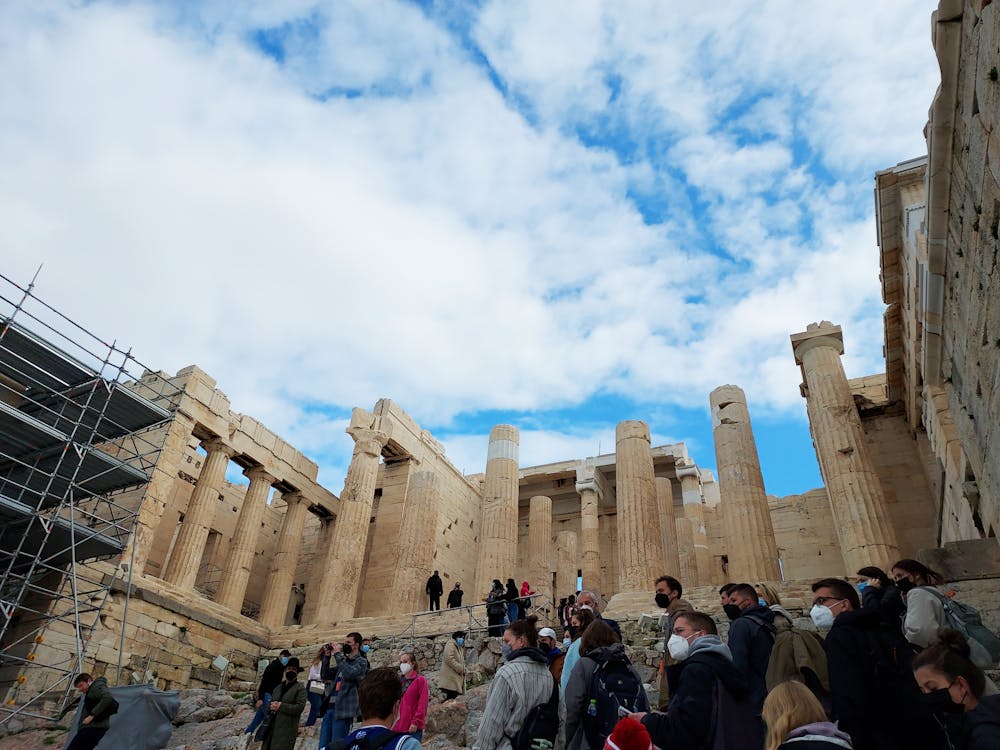Taylor provides several ways to step out of your familiar culture and into ones that are different. Among them are the study abroad and missions trips which give students the opportunity to experience what someone else’s normal looks like and have a wider view of the extent of God’s creation.
These trips can benefit students through developing relationships with God, the others on the trip and even some locals if they’re willing to put themselves out there. They can also develop in their understanding of themselves and the world around them.
Director of Taylor World Outreach Kiplangat Cheruiyot (Chip) Bii described how he has seen change in students who have traveled overseas.
“The focus shifts from the idea of my self to God, and so those things are evident when you see [them] even before they leave the USA, and even more so when [students] they come back,” Bii said. “They have a different view of either themselves, the team, God or the world. No one stays the same.”
It’s important to consider these trips and determine if God is calling you to one because of the invaluable experiences they can provide. However, Assistant Director of Off-Campus Programs Jeffrey Miller pointed out that these trips do not automatically change students. A lot of the change that happens within students depends on how he or she approaches it.
Miller also talked about how the change that a trip can incite in a student’s life isn’t always drastic but can still be impactful.
“It doesn't have to be a complete 180 and ‘the way that I was going was wrong and now that I go overseas, I flip and go the other way,’” Miller said. “No, that's not it, but if you make a small shift over the course of your life, you end up in a completely different place than where you were going to be, and study abroad has a huge impact on being able to make that shift in someone's life.”
One approach to international travel can be viewing other countries as exotic places to visit and check off the bucket list, which is not necessarily bad but should not be our only approach. It can be easy to get caught up in the excitement and allure of traveling to another country, but we need to be thoughtful and considerate in the way we approach these trips.
Dean of International Programs, Higher Education Adjunct Faculty and Director of Spencer Centre for Global Engagement Charlie Brainer expressed the vitality of stepping into other people’s home countries with care.
“It's a privilege, and you're going into somebody else's place,” Brainer said. “So, you're the visitor. You're the outsider, so it's your responsibility to begin observing, and trying to understand and notice what are the customs, what are the typical behaviors and trying to be a student of that.”
Miller suggested a few ideas which might help students to connect more with the culture and the people such as learning the language (even if it’s just a few words) or befriending a local. These steps can help form deeper connections to the culture and understand more about what everyday life looks like for those from that country so it doesn’t seem so foreign.
Sophomore Dani Gavilanez brought up the importance of preparing for the trip beforehand and discussed how the lead-up to her J-term trip to Greece focused on intercultural competence. For her group, this looked like discussing how to step into a space outside of their comfort zone and how to then come back, process and relay the experience to others.
“I feel like because we thought about each of those things, and we debriefed really well, I think intercultural competence was something that started to grow and I think will continue to grow,” Gavilanez said.
While we at the Echo editorial board think study abroad and missions trips are important to consider, we also understand that it’s not a feasible option for everyone. There are still plenty of ways to experience other cultures.
Whether that’s attending cultural events hosted by an organization from the Office of Intercultural Programs (OIP) or sitting down with someone and asking them about their experiences from their time in another country, you can be engaging with plenty of cultures right here on Taylor’s campus.
Our cultural engagement should not be limited to cross-cultural trips. Those are a good source for it, but not our only source by any means. On campus, the OIP hosts many events such as Mosaic Night and Multicultural Worship Night which allow students to step into different cultures even just for a night.
There are also many students on campus who either come from another country or have lived for a significant period of time in another country who are ready and willing to share about their culture if you were to ask about it.
In whatever path God leads us to engage with other cultures, we need to handle the situation with care and consideration. There is always more for us to learn about the world and the people that God created. So, let’s allow ourselves to be open to learning from other cultures, no matter how different they may be from the one we grew up in.



